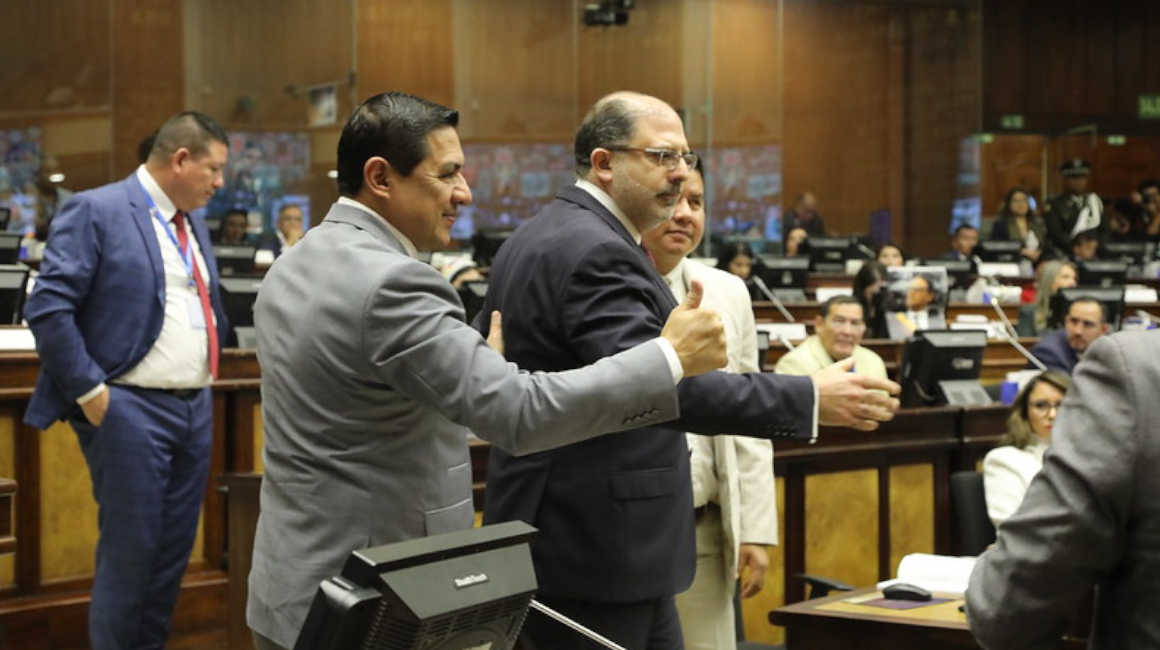The most recent drop in the country risk came after the government sent its proposed VAT increase to the national Assembly.
In a significant turn of events, Ecuador’s country risk has witnessed a notable decline to 1,879 points, marking the lowest level since Daniel Noboa assumed office almost two months ago. The indicator, which gauges international markets’ perception of a country’s ability to meet its obligations, had consistently hovered around 2,000 points for the majority of the new government’s tenure.
The latest data, published by the Central Bank of Ecuador on January 18, 2024, reveals a drop from 2,011 points on January 11, just a day before the government proposed a VAT increase from 12% to 15%. The proposal, part of the Organic Law to Confront the Internal Armed Conflict, the Social and Economic Crisis, aimed to generate income to address these pressing issues.
The subsequent debate in the National Assembly and among various sectors of society led to a series of alternatives being proposed to tackle challenges such as drug crime. The unrest culminated in a violent day on January 9, with attacks across the country and the intrusion of TC Televisión, causing the country risk to surge to 2,039 points.
However, the indicator has been on a steady decline since then:
- January 12: 1,968 points
- January 15: 1,968 points
- January 16: 1,930 points
- January 17: 1,910 points
- January 18: 1,879 points
Throughout 38 of the 57 days of Noboa’s presidency, the country risk had surpassed 2,000 points, reaching 1,925 on the day he assumed office on November 23, 2023. The current level now mirrors that of the presidential elections on October 15, where it stood at 1,859 points.
Ecuador’s shift in ranking among regional countries is noteworthy. Formerly above Argentina, it now holds the fourth position with 1,879 points. Venezuela maintains the top spot with 19,298 points, followed by Bolivia with 2,218 points and Argentina with 1,966 points.
Santiago García Álvarez, a professor at the Central University, attributes this decline to the government’s coherence in approving the Economic Efficiency law, generating certain tax revenues. Notably, the decision to leave the tax on foreign exchange outflows (ISD) at 3.50% and the announcement of the VAT increase may have bolstered market credibility, instilling confidence in the country’s ability to cover international debts.
García remains cautious, pointing out the complexity of the liquidity and fiscal deficit situation. He underscores Ecuador’s vulnerability to organized crime, suggesting that the indicator might not continue its decline. He believes that if the VAT increase is approved, the indicator could drop further, though he advises it to be a temporary measure.
Expressing concern, García emphasizes the importance of the government understanding that imposing significant burdens on citizens during an economic downturn, such as reviewing fuel prices in addition to VAT, might be unwise. Instead, he suggests focusing on renegotiating multilateral debt, ruling out default as a damaging option for the country. As Ecuador navigates these economic challenges, strategic decisions and international cooperation will play a crucial role in shaping its financial stability.


They need to be mind full of raising Gas and fuel prices if truckers prices go up for fuel and gas then the cost of increase will be passed down to stores then stores will increase prices this will not just effect stores but the poor and middle class there for cose rising inflation who will benefit only the Rich an increase in VAT taxes will be a much better solution